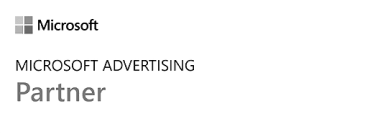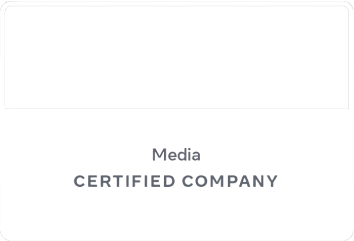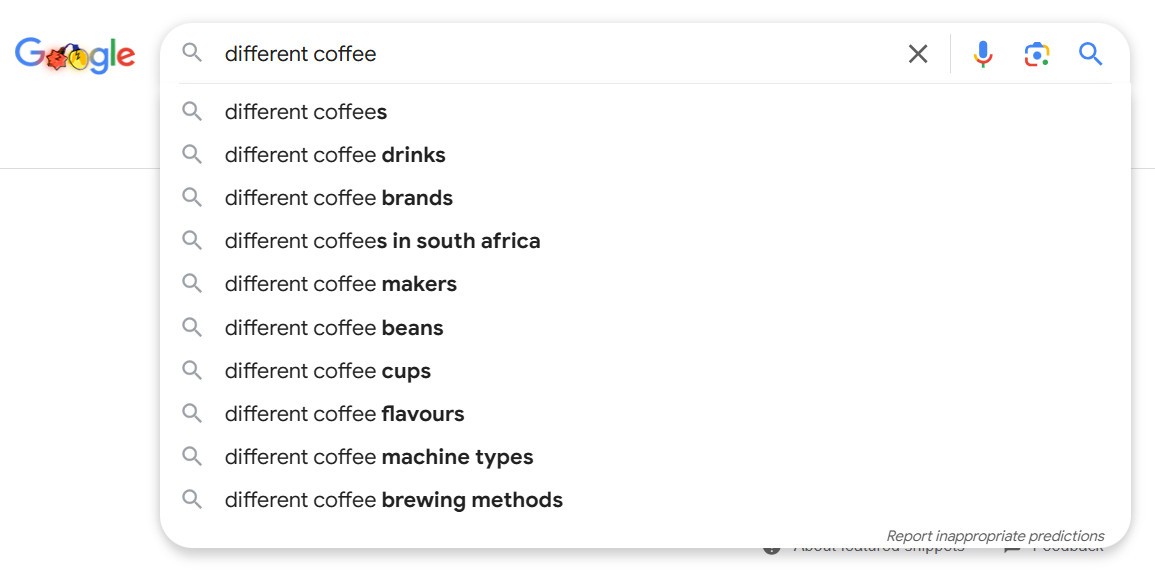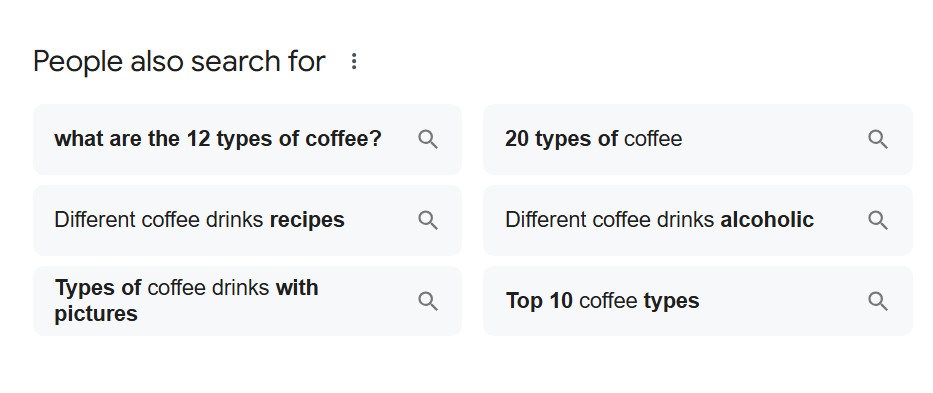How Many Keywords Should You Target?








How many keywords should you target? One.
One might not sound like much, and we promise you that we don’t just say that because we want to clickbait you into reading. “One” is the right answer. But you need to be really specific about it and pick the right one.
Most pages on your website should focus on one specific keyword, that you can incorporate three or four times throughout the content. You can also include maybe two or three other keywords that are similar as well.
What should these keywords be? Where do you find them? How do you use them? Read on if you would like to find out how to go about getting the right keywords for your content strategy. Or, you can speak with us at WebFX and speak to a specialist who can do it for you. Our contact is 888-601-5359.
Here are some quick links for you discover how many keywords should you target!
- Find out how search engines view keywords
- Top 5 places you can source keywords
- Discover how many keywords to use on one page
- Check out how many keywords you should target in total
- Explore what are the best ways to use your keywords
- Understanding user intent and keywords
How search engines view keywords
Search engines can now interpret and understand the context of a search query. They can look up synonyms to certain words and search for phrases that may use different words, but mean the same thing.
But that doesn’t mean Google has identical search results for two different keywords. Often you need a second word for context. For example, the term “Jaguar” could refer to both the car and the animal. Even “Jaguar speed” could be for both.

This is why it is important to ensure you have the right keywords when creating your articles, blogs and landing pages.
Looking for keywords? 5 top places to find keywords here!
Understanding how many keywords should you target is one thing, but the second question is where do you get these keywords? Here are the best, top 5 places to find keywords for your brand.
1. Google Search suggestion
Begin typing a query into Google’s search bar. It will automatically make suggestions that relate to your query and give you an indication of what is currently popular on the internet.

Also, check out the “People Also Ask” section for additional related questions to target. The last section you should look at is the related searches. You can find this by scrolling down to the bottom of the search results. There you will find related search terms and phrases.

2. Competitor Analysis
If you are still determining what keywords you should be using, consider checking over the fence with your competitor. Doing a competitor analysis can enable you to see what keywords they are using and possibly give you a starting point.
3. Keyword research tools
Pick a keyword research tool that will allow you to analyze the keywords of your competitor’s website. Use the organic keyword report tool to get a list and find keywords that would make a good fit for your website as well.
Free Keyword Research Tools
- WebFX Free Keyword Tool: A free keyword tool we’ve created for everyone to use, to start your keyword research.
- Google Keyword Planner: Ideal for discovering keywords within search volume, competition levels, and Cost-Per-Click (CPC).
- AnswerThePublic: Generates questions and topic ideas based on a seed keyword.
- Google trends: Identifies trending keywords and seasonal variations in search interest.
How many keywords can you use on one page?
To figure out how many keywords you should target on one page, start by asking yourself a question: What is the main subject of this page?
Step 1: Your page’s subject
Let’s say you run an ecommerce store that sells a wide range of running shoes. The subject of the page is clearly the shoes, but how do you know what to call them, exactly?
You can do some keyword research with tools like the Google Keyword Planner to figure it out. You can also use WeFX keyword research tool, KeywordsFX. That’ll show you the approximate popularity of different phrases like “running shoes,” “athletic shoes,” and “jogging shoes.”
For the purposes of this example, let’s say you choose “running shoes.”
Step 2: Different varieties of that subject
After you have the keyword you want, consider the different variations of that subject that you carry.
In this case, you could carry men’s running shoes, women’s running shoes, long distance running shoes, brand name running shoes, discount running shoes, and more.
It’s also possible that you could have all of those items on one big page that lists products. In that case, “running shoes” would fit best fit for everything, while you can include links to more specific pages later.
Step 3: Organizing those varieties
Finally, it’s important that you organize those varieties on your site in a way that makes sense to search engines and users.
That means offering additional information for every sub-type of a keyword that you want to target.
So from your “running shoes” page, users should be able to click to a page that talks about “women’s running shoes” only.
They should also be able to click to a page about “discount running shoes” and “brand name running shoes” just as easily.
Those pages should contain more specific information to reinforce that keyword. The more specific you can be, the better your chances will be of having those pages show up for even more specific keywords.
With this example in mind, we have our answer to our original question.
How many keywords should you target?
So, how many keywords should you target? For every page you have on your site, you should target one keyword specifically.
If that keyword has variations, create other pages to cover those variations in greater detail to offer the best possible information to your users.
Be as specific as you can, and include variations of a keyword only if they make sense naturally. Don’t try to cram one page full of keywords that apply to one general subject.
With that kind of specificity, you can be sure that you’ll best serve the wants and needs of your users — especially through Google.
It also gives you the chance to show Google and site visitors how much you know about topics related to your industry. That makes you an authority among your competitors, which further drives potential customers to your business.
So if you want to make the biggest and best impact on your customers, concentrate on one specific keyword per page. Even if it’s a general page that links to other related pages, be as specific as you can.
Once you do that, your site’s content will be hyper-targeted to long-tail keywords that can continue to generate traffic and new potential customers. That gives you more potential to grow, and you can refine those pages individually to more efficiently convert visitors into paying customers.
And after you do that, you can target more keywords, repeat the process, and grow even more!
Best ways to use your keyword
You should use your keyword as naturally as possible within your text at least twice. If your copy is over a thousand words, you could include it maybe three or four times. The important thing is that you want Google to know that your page is about that topic, but you don’t want to be pushy about it.
A few great tips to include your keyword are:
- Use it in the heading
- Use it in your subheadings
- Use it in your title heading
- Try to get it in once in the first paragraph
- Include it in your metadata
Understanding search intent and keywords
Search intent, or user intent, is the goal behind a search query. It’s the reason someone types something into a search engine, and understanding it will help you create content that meets the needs of your audience. Search intent is considered one of the foundational elements of SEO, as search engines aim to deliver results that align with what the user is truly looking for. There are four different types of search intent:
- Informational intent: Here, the user is looking for information or answers to a specific question.
- Navigational intent: The user wants to visit a specific website to find a specific brand, product, or service.
- Transactional intent: With transactional intent, the user is ready to make a purchase or take an action.
- Commercial investigation intent: The last one is where the user is researching options before making a purchase or decision.
Search intent and keywords are closely intertwined concepts, as they directly impact the effectiveness of your content strategy, including the decision about how many keywords you should target. It matches the content to users’ goals, whether they are seeking information, making a purchase, or navigating to a specific site.

For example:
A blog post about ‘how to bake a chocolate cake’ should focus on information keywords like chocolate cake recipes’ or ‘steps for baking a cake’ rather than transactional ones like ‘buy cake baking tools.’
Content optimized for specific intent will likely rank higher and attract clicks. However, you should consider that targeting too many diverse intents within one article can dilute its focus and reduce its effectiveness. Instead, address a single, clear intent to help users quickly find the answers or solutions they seek.
The ideal ratio of user intent a website should target depends on its goals, industry, and audience. However, the more balanced approach, the more likely it will be effective,and you will engage with all aspects of the user’s journey. By analyzing your niche and competition, you can figure out how many keywords you should target, and what user intents, to achieve your goals.
Improve your company’s use of keywords
WebFX is a full-service Internet marketing agency, and we know the value of targeting high-value keywords for any business.
If you want to start showing up in search results from Google, Bing, and other search engines, we can make it happen!
Contact us today to create a keyword strategy that’ll help your business grow!
Related Resources
- 3 Ways to Find Related Keywords and Improve Your SEO Strategy While Doing It
- Conversational Search: How Younger Generations Are Leading the AI-Powered Search Revolution
- Google Keyword Tool: Use This Free Keyword Research Tool to Find High-Value Keywords
- How Competitor Keyword Analysis Can Improve Your SEO
- How to Do Ecommerce Keyword Research to Find Revenue-Driving Keywords
- How to Do Keyword Research for SEO
- How to Find Long-Tail Keywords to Stay Ahead of the Competition
- How to Identify Quality Keywords
- How to Improve Your SEO Keyword Targeting with Motion Charts
- Keyword Density Checker Tool: How to Check Keyword Density for Free [+FAQ]
Marketing Tips for Niche Industries
- Funeral Home SEO Services
- Healthcare SEO Pricing: How Much Does Medical SEO Cost?
- Healthcare SEO Pricing: How Much Does Medical SEO Cost?
- Hotel SEO: Tips, Best Practices, and More
- How SEO for Equipment Rentals Works: the Ultimate Guide
- How SEO Makes Remodeling Companies Grow
- How SEO Makes Remodeling Companies Grow
- How Talent Scouts Can Use SEO
- How Technical Schools Can Reach Students with SEO
- How to Use SEO for Machinery Manufacturers

